by admin | Sep 3, 2015
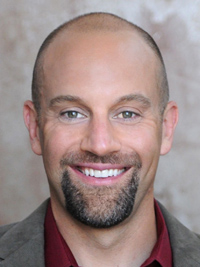
Mike is the author of the new book, Nothing Changes Until You Do: A Guide to Self-Compassion and Getting Out of Your Own Way (Hay House). He’s a sought-after keynote speaker and media personality. His previous two books, Focus on the Good Stuff (Wiley) and Be Yourself, Everyone Else is Already Taken (Wiley) have been translated into fourteen different languages.
Mike has been a guest on hundreds of TV and radio shows throughout the United States and Canada – ABC News, the Oprah radio network, NPR, and local TV and radio shows in markets such as San Francisco, Atlanta, Los Angeles, Orlando, Kansas City, Phoenix, Salt Lake City, Minneapolis, Vancouver, San Diego, Detroit, and many more. He has also been featured in Forbes, US News & World Report, the Washington Post, Ladies Home Journal, SELF, Fast Company, The Wall Street Journal, and many others. He’s been a regular contributor to Oprah.com in the past and has blogged for the Huffington Post since 2008.
by admin | Aug 27, 2015

“Avoid Advice Overload. You got this.”
When I started my blog I didn’t know it would become a business. I loved helping people and I wanted to make it a full-time job. Though I had no idea how to do that, my gut told me to try anyway. And so the adventure begins…
But like most great adventures, I was lost in the beginning, and when you’re lost, it’s natural to seek guidance. Well, I went a little overboard with my need to gather opinions. In fact, I collected so many confusing recommendations that I got totally overwhelmed and almost quit.
Today I want to share some of the worst advice I’ve ever received and how you can benefit by not listening.
Hands down, my biggest mistakes came from not believing that I had the ability to figure it out. And truth be told, I wanted someone to save me, to do the work for me. I think this is called Prince Charming syndrome. Whatever it is, I desperately wanted to be taken care of, not surprising since I decided to change my career in the middle of a huge health crisis.
As a result, I listened to potential investors, business partners and advisors. “Launch a non-profit, create a school, be a reality TV star, design state of the art tongue scrapers.” Oiy, I’m getting tired just remembering this stuff. I listened to consultants, agencies and think tanks. I listened to well-meaning friends and family (who had never launched a business). And oh boy did I listen to the media, critics and especially bad reviews.
Then one day, I stopped listening.
I remember the afternoon I took my entrepreneurial life by the ovaries and said, everyone OUT. I got this! Now mind you, I still didn’t know how exactly “I got this” but I was tired of the noise and I knew that I’d be fine if I got laser focused and listened to my inner wisdom.
 Tweet: No matter what we’re struggling with, the more we look within for solutions the clearer the path becomes @Kris_Carr http://bit.ly/1M66wNA
Tweet: No matter what we’re struggling with, the more we look within for solutions the clearer the path becomes @Kris_Carr http://bit.ly/1M66wNA
Sometimes the only person who can save you is you. I’m not saying we shouldn’t get advice from others. Useful advice can be the difference between success and failure. But more often than not, too much advice kills our mission and mojo. There’s no way around rolling up our sleeves and doing the work. You may need some training (I did). You may fail and fall (I still do), but if you have the passion and vision, the path to success is easier than you think.
What can you offer the world? Hint: plenty!
What message do you have to share? Why is that message important to you? (This is essential because when you forget, your work suffers). Where is the need for your service, product or expertise? How can you deliver it in a unique way? Hint: Be yourself and test your crazy ideas. Are other people charging for the same knowledge or talent you have? If you can’t answer these questions yet, no worries. Just allow them to get the wheels turning and the creativity flowing.
This isn’t the moon landing, there’s no need to overcomplicate your vision. No matter what we’re struggling with, the more we look within for solutions, the clearer the path becomes. Needing to take action is inevitable, but it doesn’t have to be aimless or confusing.
When it came to my health, I ultimately decided to tune out the fear mongering noise and start taking care of myself. Not everything I tried worked, but the more I checked in with my inner guide, the less likely I was to waste my time with the latest fad. As for my business, my focus became clear and simple: write useful-fun-awesome stuff, give lots of it away for free, and occasionally charge for the rest. This allowed me to support my readers, my family and a whole bunch of other families—my Crazy Sexy Team.
by admin | Aug 27, 2015
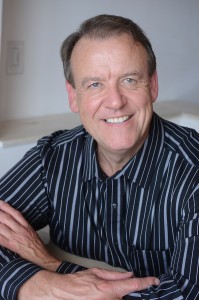
September 1, 2015 – When experiencing high levels of stress, blood drains from the forebrain to flood the muscles, preparing us for fight or flight response.
This response completely compromises our ability to make wise and sound decisions.
Now for the good news:
Dawson Church, PhD, author of Genie in Your Genes, explains that it’s not only possible to lower these stress hormones that overburden the system and cause a host of problems, but we can also boost our cell rejuvenation hormones that have major positive effects on our health.
In our interview with Dawson, we cover EFT and use Todd as our “handsome Guinea pig” for a tapping session.
EFT, combined with meditation, connects us with the storehouse of wisdom and blessing inside of our bodies.
Another fantastic point raised in this interview is the notion that talk therapy, reiki, body work, whatever form of healing we’re doing for ourselves, is wonderful AND (as many of us know), not a single one of them is the panacea that cures all.
EFT just so happens to be a free, effective, and scientifically proven technique to use in conjunction with other self care we do that cultivates a relationship with our inner guidance.
Formal Bio:
Dawson Church, PhD, is an award-winning author whose best-selling book, The Genie in Your Genes, (www.YourGeniusGene.com) has been hailed by reviewers as a breakthrough in our understanding of the link between emotions and genetics. He founded the National Institute for Integrative Healthcare (www.NIIH.org) to study and implement promising evidence-based psychological and medical techniques.
His groundbreaking research has been published in prestigious scientific journals. He is the editor of Energy Psychology: Theory, Research, & Treatment, a peer-reviewed professional journal (www.EnergyPsychologyJournal.org), a blogger for the Huffington Post, and a reviewer for the APA’s Mental Health Mobile Phone Application Review Database. He shares how to apply the breakthroughs of energy psychology to health and athletic performance through EFT Universe (www.EFTUniverse.com), one of the largest alternative medicine sites on the web.
Listen to “EFT with Dawson Church 9/01/15” on Spreaker.
by admin | Aug 17, 2015

by Kim Schneiderman
As a psychotherapist in private practice, I can’t help but notice that Facebook is wreaking mischief in some of my clients’ personal lives.
One client caused a family scandal when he established privacy settings that prevented some, but not all, of his relatives from seeing his status updates. A 14-year-old client gave up Facebook for Lent, yet still managed to become entangled in a high school “de-friending” drama. A third client “disallowed” her arch Conservative brother from commenting on her statuses after he started arguing with her politically liberal friends. And finally, a 20-something client tried to gauge the temperature of his on-again-off-again girlfriend based on how often she “friends” or “de-friends” him.
Indeed, social media offers the online universe a whole new arsenal to offend, snub, flirt, spy on, and make public declarations about those we “like” and those we don’t. Given the growing ranks of users, it’s hardly surprising that Facebook is making its way onto the therapy couch.
“I absolutely agree that Facebook creates stressors,” said Stacey Nunez, a Manhattan-based psychotherapist, noting that many of her 20-something female clients have severe anxiety and depression as a result of their Facebook usage. “They cyber-stalk ex-boyfriends and fantasize about what these people are doing in the photos,” she explained. “It often creates false expectations as well as low self-esteem, which in turn creates difficulty connecting when placed in a face to face situation.”
Research appears to back this up. According to psychologists at Edinburgh Napier University, Facebook stresses people out. In a study of 200 students, researchers observed a correlation between stress levels and the number of Facebook “friends.” Apparently, the more friends a person has, the more one worries about missing important social information, offending contacts, rejecting user requests, deleting unwanted contacts, being entertaining, or using appropriate etiquette for different types of friends.” Additionally, Facebook can engender lifestyle envy.
Lest the media be confused with the message, one might argue that Facebook isn’t necessarily creating drama, just reflecting subtle relationship dynamics that lurk beneath the surface. Social media is, after all, a modern form of storytelling, predicated on people’s desire to share their stories in moment-to-moment sound-bites and colorful narratives. Where else can I follow the daily chronicles of my childhood friends and long lost relatives, or enjoy the chapter-by-chapter unfolding of my friend’s sojourn into single fatherhood?
But by pronouncing precisely who likes and doesn’t like who and who is doing what, Facebook tells us in black and white letters and full-color photos what we might otherwise read between the lines and perhaps wish we could ignore.
One thing is for sure: Facebook can be a virtual breeding ground for aggressive and passive-aggressive behavior, especially for those who haven’t mastered the art of direct communication. One client complained that, following a few arguments, her husband publicly vented his frustrations in their marriage by making generalized critiques in his status updates – eg. “I don’t understand why some people always over-react.”
Another psychotherapist, who asked to remain anonymous, disclosed that a client who works as a professional photographer broke up with his girlfriend after she repeatedly questioned him about pictures of other women he posted on his site. Even after the relationship ended, she continued to harass him by “friending” mutual acquaintances of theirs and making sarcastic remarks about him on their Facebook status updates and photographs.
“I find that Facebook can have devastating effects on the younger set, especially 13 through early twenties”, explained Dr. Sandra Mann, a Manhattan-based family therapist. “The socialization of teenagers when they’re undergoing rapid brain development and learning social skills that will take them into adulthood is hard enough without faceless assaults. The lack of empathy that comes from not observing body reactions to comments are most troubling. Even the slightest rejections can rock the strongest egos.”
In my private practice, I’ve observed that Facebook can be particularly insidious for clients coping with divorce and family feuds, regardless of age. One client whose large extended family split into factions after a nasty inheritance scandal told me he gets re-traumatized every time he sees his estranged cousins commenting on his neutral cousin’s status updates, and vice versa. “I don’t want to see picture of these people and their kids. I want nothing to do with them,” he said.
The grass also appears to looks greener on Facebook for clients with low self esteem who report that their lives don’t appear to measure up to their friends who have better spouses, lifestyles, and careers. A single client of mine who recently turned 30 felt conflicted about the engagement announcements and wedding pictures of so many classmates.
“It’s all relatively new, and humans have adapted from horses to autos; letters to phones,” explained Dr. Mann. “The next generation will figure out how to protect themselves better. It’s the clean-up from this first iteration that will be most troubling.”
by admin | Aug 17, 2015
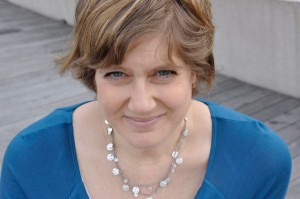
August 18th, 2015 – Show Synopsis:
Most people understand that their life is an unfolding story.
But few step out of their story to ask themselves who is writing the script, what the story is about, or what tools are needed to learn and grow.
Kim Schneiderman believes that is when we really suffer – when there’s a storytelling deficit.
Turns out, our ability to envision ourselves as the lead character in our life’s story is crucial to our well-being because how we tell the story adds meaning to our lives.
Her new book, Step Out of Your Story, Writing Exercises to Reframe and Transform you Life, is an intervention into our suffering and a tool that helps people see, thus experience their lives differently.
Schneiderman, in her work as a psychotherapist and workshop facilitator, has discovered that most people prefer “low impact” routines.
Meaning, though we’re surrounded by challenging characters that could help us grown beyond our perceived limitations, our negative, underdeveloped stories prevent us from meeting that challenge.
Kim teaches that the antagonists in our lives are our personal trainers, helping us develop those flabby parts of ourselves that need more work.
Formal Bio:
Kim Schneiderman, LCSW, MSW, is a psychotherapist, workshop facilitator, former journalist, and spiritual essayist who lives and works in New York City.
Her new book, Step Out of Your Story, Writing Exercises to Reframe and Transform your Life, offers a story lens on life that help us see ourselves as ever-evolving characters growing through changes and challenges that show up in our narratives, which are works in progress.
As a writer, journalist, and therapist, Schneiderman believes our lives consist of stories that can be told in infinite ways. Every time we open our mouths, turn on our Ipads, or “put pen to paper,” we make choices about how to tell a tale, about highs and lows, relationships and jobs, heartaches and joys.
To read her full bio, go here.
Kim’s website here.
Listen to “Reframing Your Story with Kim Schneiderman 8/18/15” on Spreaker.
by admin | Aug 6, 2015

Ask for help, and then, for crying out loud, accept it!
It’s important to ask for help from your highest source. We all must remember that our highest source has our back. And that source will often send good people our way as help.
If we turn away from these good people, we are literally turning away the help sent by our highest source.
Here’s the funny piece. We think we are being independent when we decline one’s help. Actually we’re being so independent that we fail to see the good side of asking for help.
A highest source reminds us that we have fabulous connections in our life (already in place!) And they will be the one’s to provide the help.
It’s as though our highest source is saying, “Hey, no worries, I will give a nudge to your wife or your boss or your best friend or your mechanic or your pastor… I’ll let them know that they have the exact gift you need…so hang in there for a day or so and I will send this lovely person with their gifts your way. I know you will welcome him because I sent him.”
That’s your highest source at work.
by admin | Jul 31, 2015
I just returned from an invigorating trip to California to study the Enneagram with Dr. Robert Holden and meet all the amazing people he attracts to his seminars. I follow Robert because he IS love. He teaches love, he is love, he understands love. He is the real deal. To get a flavor of his voice, we’ve included a blog post from his website as well as a link: www.robertholden.org.

What you focus on most often becomes familiar, and what is familiar feels real to you. — Robert Holden, Ph.D.
My training in psychology, with its almost exclusive focus on pain, is a very common story.
It also reflects a tendency in our society to focus on negatives.
Doctors, for instance, study illness, not health. Business leaders analyze failure, not success. Economists study cost, not value. Philosophers mostly debate original sin, not original blessing. Christians talk endlessly about crucifixion, not resurrection. Mental health organizations publish books on “Understanding Depression,” “Understanding Stress,” and “Understanding Bereavement,” but not on “Understanding Joy” and “Understanding Love.”
The media is full of journalists suffering from an addictive, antisocial, obsessive-compulsive need to communicate and make up bad news. Literature and art is full of depressed poets and painters—can you name three joyful poets?
What you focus on most often becomes familiar, and what is familiar feels real to you.
In our society, we focus on pain before joy, tears before laughter, and fear before love, so we gradually grow blind to our inner, ever-present potential for happiness. I remember well how my lecturers frowned on happiness.
What they taught me essentially was: “If you find that you’re experiencing happiness—don’t worry—you’re just in denial, and the pain will soon return!”
Happiness appeared to have no value, other than that it offered a temporary respite between periods of pain and trauma.
It was defined simplistically as the absence of pain.
Other messages I received included, “Happiness is superficial, pain is deep,” “Laughter is a common symptom of manic depression,” “Smiling a lot means you’re suppressing a hidden pain,” “Optimism is often unrealistic and delusional,” and “Talking to God is the first sign of a nervous breakdown.”
Of greater concern to me, though, is the large body of thought within the psychology profession that suggests that happiness is in some way a dysfunctional behavior in light of all the suffering in the world.
The idea is: “If you have normal blood pressure living in our troubled world, you’re not taking it seriously enough.”
There have been several recent studies that have tried to suggest that happiness is only an avoidance of real issues, a selfish coping strategy, or a superficial form of escape.
This thinking doesn’t take into account that your happiness is an inspiration, a gift to others, and a way out of suffering.
When I asked my lecturers why we didn’t study happiness, they usually challenged me to look at my resistance to embracing my pain more fully!
The most common explanation given, however, for why happiness, love, peace, and God aren’t studied by psychologists is that they cannot be measured as easily as fear and pain.
In other words, they are inner potentials that don’t show up on laboratory apparatus designed to measure externals.
Just because psychologists choose not to focus on joy, however, doesn’t mean to say that joy doesn’t exist. We can refuse to look at the sun, for example, but that won’t make it go away.
Excerpted from his book, Be Happy
– See more at: http://www.robertholden.org/blog/focus-on-happiness/#sthash.YujgCsZJ.dpuf
by admin | Jul 31, 2015
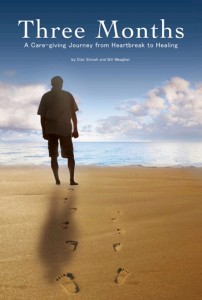
J. Dietrich Stroeh’s life came apart after learning that his wife had pancreatic cancer. The Stage Four diagnosis took him on the roller coaster ride of his life.
Overnight, this successful businessman became a caregiver powerless over the course of his wife’s illness.
He had to face internal weaknesses and external obstacles in order to take care of her and, when the time came, lovingly let her go.
He offers other caregivers useful tips and suggestions he has learned the hard way in this free ebook, 13 Tips for Caregivers.
“These 13 blog posts and published articles are intended to offer thoughts, tips, and resources that could not only reduce the angle of your learning curve but also remind you that you are not alone,” Stroeh said.
Stroeh is also author of Three Months: A Caregiving Journey from Heartbreak to Healing. Now available in paper and as a Kindle ebook, these books explore his personal journey as a man who decided to be his wife’s primary caregiver.
Advocating for a loved one, caring for one’s self, being part of the medical team, and handling grief are only a few of the topics that are addressed simply in this first-person story.
He is also author of Being a Caregiver Isn’t Magic: It’s An Art
An engineer by trade, J. Dietrich “Diet” Stroeh has headed up projects great and small, and managed the Marin Municipal Water District in the midst of one of the worst droughts on record.
That experience was the basis for his first book, The Man Who Made it Rain, co-written with Michael McCarthy.
13 Tips for Caregivers is available as free download at threemonthsbook.com.
Listen to “Caretaking with Dietrich Stroeh 8/4/15” on Spreaker.
by admin | Jul 23, 2015

Original post here.
Whatever the reasonmay be, the majority of single moms I know don’t have great things to say about their ex.
I am not going to stick up for the deadbeat men that leave their kids high and dry. I’m also not going to defend good dads who are pushed away by crazy moms.
Today, I am going to stick up for the fatherless boys in the crossfire.
No matter what you think about dad, when you say phrases like, “I hate men” or “men are terrible” or “you’re giving up on men,” your son is in the crossfire and his life will be negatively affected by it.
Take a step back and see it through your son’s eyes.
Momma, talking negatively about men doesn’t set a good example! Your son is young now, but he knows one day he will grow up. When you talk poorly about men, even hateful sometimes, he gets confused about what or who he is supposed to become. He doesn’t want to become someone you hate. It’s hard for him to distinguish between your love for him and your anger at dad. This confusion literally stacks the odds against him becoming anything of value to the world.
Is it logical for your son to desire to become something you hate? Odds are your son looks up to you. You are the main person taking care of him. Despite any rough spots, he loves and respects you and desperately desires to become a great man.
Momma, what can you do? Provide your son with extreme clarity by asking this question:
What kind of man do you want him to be?
If you want him to become a man who reflects the fruits of the spirit love, joy, peace, patience, kindness, goodness, faithfulness, gentleness and self control (Galatians 5:22-23) then they have to be modeled to him.
Momma, please don’t confuse your son and leave him with no hope of knowing what a real man is. Instead, invest in him. Teach him the behaviors a woman respects and the reasons why you think these characteristics are good. Give him hope everyday that men can be loving, peaceful, patient, kind, good, faithful, gentle, and have self control; even if his dad was none of the above.
Not all boys are destined to be failures… what you say matters!
No matter what has happened to you, it’s your decision what you will do to the future man you’re raising. The responsibility for turning your son into a man you love or hate is in your hands.
Need help figuring this stuff out? We are building a resource library on our website www.TheMomsCoach.com. Blogs, webinars, programs, and podcast dedicated to HELPING MOMS RAISE GREAT MEN!
by admin | Jul 23, 2015
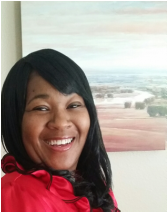
“Your pain has purpose.”
And that purpose is BIG when abuse, addiction, and prostitution are part of your story.
Sharon Blake, author of Chronicles of Pain, shares her conquest of releasing the past and finding love where it’s real.
Not where it’s quick and false.
Pregnant by age 14, Sharon originally searched for love with boys, as it wasn’t in her home or anywhere outside of it.
In fact, both places swarmed with racism and ostracism.
After Sharon’s final surrender and decision to heal, she fashioned her own tools to pave the road to her new life:
Writing
Reading
A relationship with God
And the lessons and memories of her godmother
Sharon’s work now is to spread the message of hope and redemption in the homeless community where her life serves as proof that there is much life after pain.
Formal Bio:
July 28, 2015 – Sharon is a mother of three children, “nana” to four grandchildren, and author of the book, Chronicles of Pain.
Sharon herself has overcome some major barriers in her life, she has been homeless and is an ex- addict, ex-prostitute and a domestic violence survivor.
The person she became originated from her childhood and would require a major overhaul of her thoughts, will, and her emotions. Her desire is to promote hope and healing to those who need hope and healing.
Sharon’s life would not be her life without the love of her father Jesus Christ, to him she owes more than she can give. This is her way of giving her life away, by being transparent in order to help someone else. She has an AA degree in Human Service Management as well as Chemical Dependency Trainee Certificate through the state of Washington.
Her work with the homeless/addicted population has inspired her to share her story, this is where she recognized the importance of being transparent in helping others.
The goals for writing this book is to help shed light on why individuals get to some very desolate places in life .
Her programs includes creating women’s recovery and support groups Sharon’s dream is to open a women’s home to help women get off the streets.
Listen to “Overcoming Barriers with Sharon Stone 7/28/15” on Spreaker.












Quick Links to our Social Media Sites